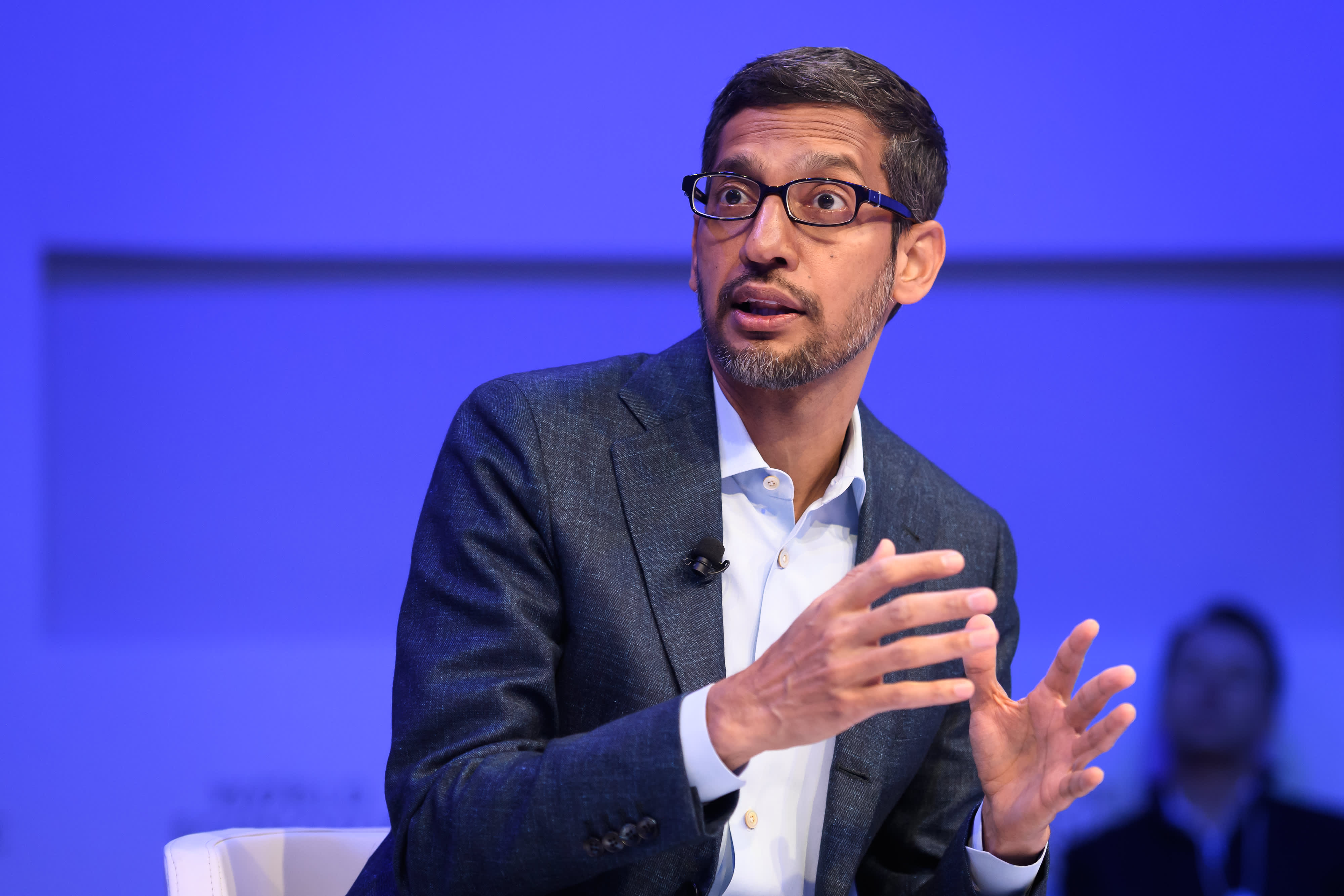Google employees are pressing executives to bring back a part of the company’s culture that, in the past, made it a desirable place to work: candor.
At a year-end all-hands meeting, held virtually earlier this month, CEO Sundar Pichai read aloud one of the most popular questions from employees, based on the company’s internal system called Dory, which allows staffers to post questions and upvote the ones they want addressed.
“It seems like responses to Dory have gotten increasingly more lawyer-like with canned phrases or platitudes, which seem to ignore the questions being ask,” Pichai said, reading the post from Dory. “Are we planning on bringing candor, honesty, humility and frankness back to Dory answers or continuing down a bureaucratic path?”
The question received 673 upvotes. CNBC obtained a copy of the question and heard Pichai’s audio.
“I understand the sentiment behind the question,” Pichai said, at the beginning of his lengthy response. “I think there are many reasons to some of this,” he added later.
Google’s cultural upheaval has been a major topic for the last few years, as the company that once uprooted Silicon Valley norms with an open and joyful office atmosphere and free discussions reckons with the current realities that come with being one of the world’s largest enterprises. The uplifting sentiment changed and trust waned after employees learned that company leaders had allegedly overlooked sexual harassment allegations and pursued government deals quietly.
Google leadership then cracked down on internal discussions and fired some employees who were critical of company policies and were involved with organizing fellow discontented workers. Employees told CNBC in 2019, that the company was becoming “unrecognizable.”
In his response at the recent meeting, Pichai acknowledged the challenges of communicating with a global workforce during a pandemic.
“We are obviously communicating at scale now — to over 150,000 people and particularly through the pandemic, doing it all remotely,” Pichai said. “I’ve noticed more people reading off screens during the pandemic and so I think some of it contributes to answers feeling canned.”
Google, like most companies, is wrestling with how to stay connected with employees, who have for the most part been forced to work remotely since March 2020. Google has been more aggressive than much of the tech industry in its aims to reopen physical offices in the new year, though it recently pushed back its return date amid recent rising cases from the omicron variant.
Google’s all-hands TGIF meetings, during which Pichai and other executives address topics of concern from Dory, have changed dramatically as well. They’re now all held over video.
Founders Larry Page and Sergey Brin started TGIFs in 1999 at Google’s campus in Mountain View, California, as a forum for employees to regularly express frustrations and discuss topics openly with management. That became a selling point for talent and a model for many tech start-ups that followed.
In 2019, Pichai announced he was replacing weekly TGIF meetings with monthly get-togethers and smaller town halls to discuss workplace issues.
Virtual meetings add a whole new wrinkle, Pichai said.
“I think people are always nervous to answer in this setting,” he said. “Sometimes, I do think that people are unforgiving for small mistakes. I do think people realize that answers can be coded anywhere, including outside the company. I think that makes people very careful.”
Pichai went on to say that “trust and candor has to go both ways,” alluding to leaks made by employees to people outside the company.
“You have to work really hard to maintain it at scale,” he said.
Pichai said that over the past two years the company has tried to organize around smaller groups, which can be better for authentic communication.
“I think it’s been super important to invest in smaller forums,” he said.
He concluded his answer by expressing appreciation for the concern and calling it “good feedback.”
“I’m glad you asked the question,” Pichai said. “I would encourage all speakers to speak and say what’s on their mind.” He added, “Let’s all try to do better there.”
A Google spokesperson didn’t immediately respond to a request for comment.
